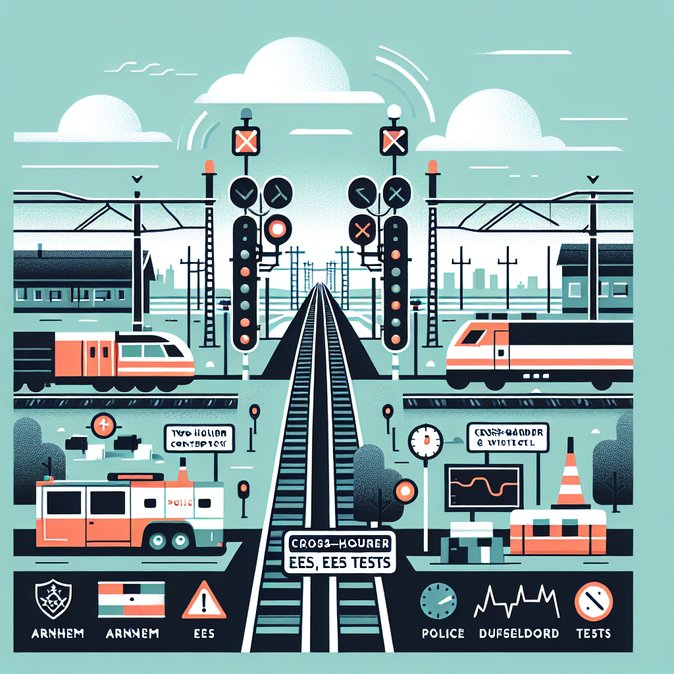
International commuters breathed a sigh of relief on Saturday afternoon after Deutsche Bahn and NS International restored services on the Arnhem–Düsseldorf corridor. Trains were halted from 12:20 to 14:45 CET on 15 November due to a signalling failure near Emmerich, stranding passengers on one of the busiest business-travel routes between the Netherlands and Germany.
While operators blamed a technical fault, union sources told Global Mobility News that timetable margins were already stretched by ad-hoc stop-and-go checks being conducted by German federal police testing new handheld scanners for the EU Entry/Exit System (EES). The dry-runs form part of Germany’s phased border-technology rollout ahead of the April 2026 go-live date.
![Cross-border Arnhem–Düsseldorf rail link back online after EES test-day outage]()
The two-hour suspension caused missed flight connections at Düsseldorf Airport and forced many travellers onto buses or ride-shares. Under EU Regulation 1371/2007, passengers delayed by more than 60 minutes can claim a 25 percent fare refund, rising to 50 percent for delays over two hours. Deutsche Bahn said it would add a spare trainset to the Arnhem–Oberhausen fleet for the winter timetable and review contingency plans for further EES trials.
For corporates pursuing ‘green-travel’ targets, the incident highlights emerging pinch-points as security authorities overlay new border controls onto already congested cross-border rail infrastructure. Mobility managers should monitor EES pilot routes, advise staff to build buffer time into schedules, and keep receipts for potential compensation claims.
Dutch and German transport ministries will submit a joint report on the outage next week; both sides insist the long-term benefits of seamless biometric exits outweigh short-term disruption.
While operators blamed a technical fault, union sources told Global Mobility News that timetable margins were already stretched by ad-hoc stop-and-go checks being conducted by German federal police testing new handheld scanners for the EU Entry/Exit System (EES). The dry-runs form part of Germany’s phased border-technology rollout ahead of the April 2026 go-live date.

The two-hour suspension caused missed flight connections at Düsseldorf Airport and forced many travellers onto buses or ride-shares. Under EU Regulation 1371/2007, passengers delayed by more than 60 minutes can claim a 25 percent fare refund, rising to 50 percent for delays over two hours. Deutsche Bahn said it would add a spare trainset to the Arnhem–Oberhausen fleet for the winter timetable and review contingency plans for further EES trials.
For corporates pursuing ‘green-travel’ targets, the incident highlights emerging pinch-points as security authorities overlay new border controls onto already congested cross-border rail infrastructure. Mobility managers should monitor EES pilot routes, advise staff to build buffer time into schedules, and keep receipts for potential compensation claims.
Dutch and German transport ministries will submit a joint report on the outage next week; both sides insist the long-term benefits of seamless biometric exits outweigh short-term disruption.









